A sweet potato sorting machine on the European continent. At the time of writing, it was a first. In March this year, the Dutch company, GreenGoose, acquired this grading machine and sorted its first sweet potatoes. But firsts often have to prove themselves on the market. GreenGoose’s owner, Christiaan van der Goes, is confident that this machine can do just that.
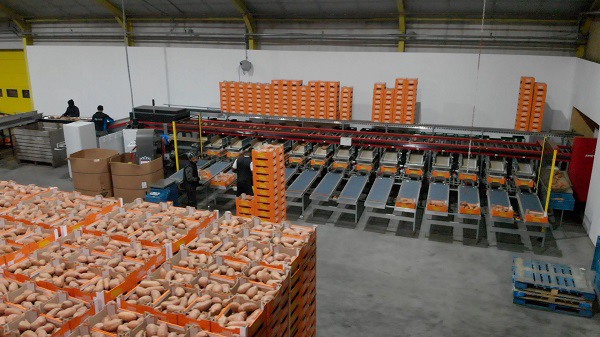
Christiaan started GreenGoose in November 2017. He decided to fully focus on import and exporting sweet potatoes for European wholesalers, retailers, and greengrocers. The importer also supplies the industry sector. There the product is, for example, processed into sweet potato fries. The company can provide these tubers year-round with imports from Africa and the United States. For this purpose, GreenGoose has 100 hectares of its own cultivation in Egypt and 200 hectares in the US. These are both managed through joint ventures.
In March 2020, the company installed the new, unique sorting and packaging machine at the Delta Fresh location in the Netherlands. GreenGoose sorts its sweet potatoes there. “We’d been looking for such a machine for 18 months,” says Christiaan. “At the time, we couldn’t find anything that would meet our needs. But, eventually, we found a suitable manufacturer, and we joined forces to design this machine.”
Quality guarantee
“Our sweet potatoes used to all be sorted and readied for export in their land of origin. We got the orders from Egypt and the United States in 6kg, palleted boxes. Upon arrival in the Netherlands, a few boxes per pallet would be randomly quality-checked. There was, therefore, always a chance that clients could receive inferior-quality sweet potatoes. This might’ve been caused by rotting, mold, or damage during transport. We now offer our clients products that have all been controlled for quality."
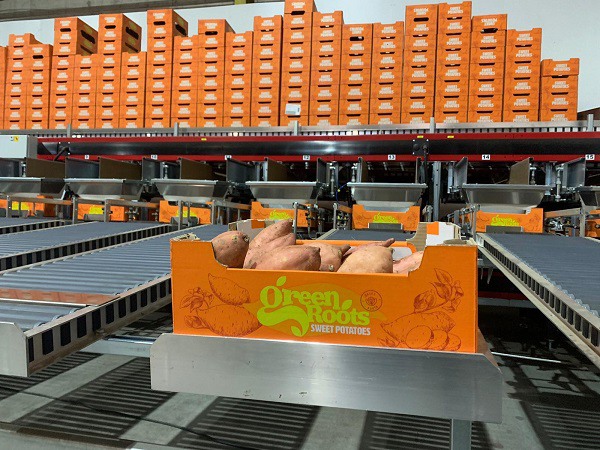
"That's thanks to the new machine. All the sweet potatoes go through the machine on the day they arrive, and we check their quality. After that, we pack them for the client. We’re establishing a quality guarantee, thanks to the product being sorted in the Netherlands," explains Van der Goes. "That means there’s less waste, and you assured of selling, say, all your 100 boxes, instead of only 70, after having to discard 30 boxes.”
Sorting sweet potatoes in their land of origin almost always involves a standard 6kg packaging. “Now that we can sort in the Netherlands, there are more options. For instance, we can not only sort the sweet potatoes into boxes. We can do so for plastic crates such as EPS and IFCO, and various weight packages."
"We use this machine for our private GreenRoots brand too. We can also sort the sweet potatoes by weight for clients. There was a demand for this, particularly from companies that want to include sweet potatoes in meal packages. They want to include, say, a 200g potato, as standard in the package,” adds Christiaan.
Less waste
The question of cost soon arises. It’s always cheaper to sort produce in the country in which it's grown. “Yes, it’s more expensive than sorting in Egypt, for example. But that only matters if European clients don’t do anything with the sweet potatoes. For those who repackage these products under their own label, this new solution is more cost-effective. We can sort very efficiently with this machine. It’s not only the money that's important, either."
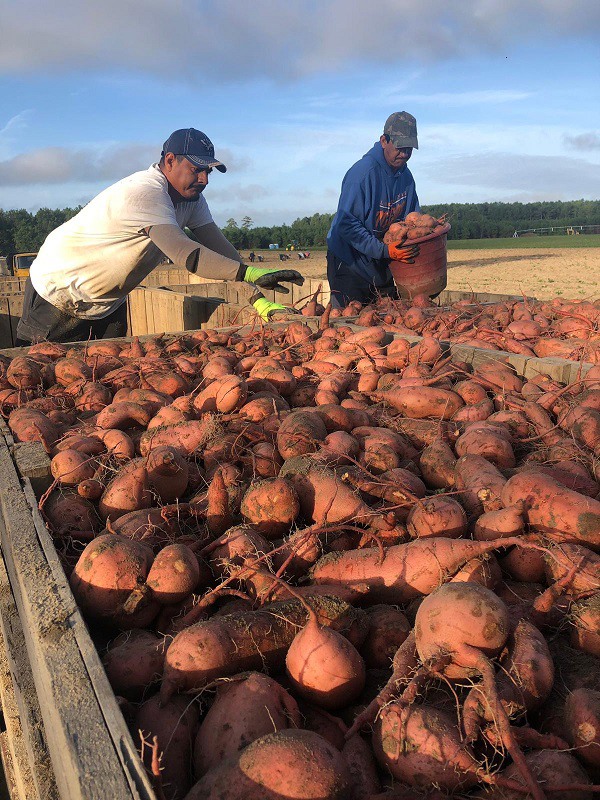
"As mentioned before, quality assurance also plays a role. There’s less downtime, and you have satisfied end clients. Clients are displeased when the potatoes are bruised. We removed the damaged sweet potatoes during sorting. We give these a second chance as industry products. That, too, makes sorting in the Netherlands more sustainable. We only ever throw out rotten sweet potatoes,” Christiaan points out.
Advantages for the production countries
According to Christiaan, the overseas companies also benefit. “We grade Egyptian sweet potatoes. New growers from emerging countries have far fewer opportunities in the European market. They can’t afford grading machines, so they have difficulty supplying high-quality products. We can help them now. We say to these exporters, ‘make sure you have a good, washed product and send them in bulk to us."
"We do the rest. That saves the farmers time and allows them to focus more on their sweet potatoes’ quality. We use this machine to sort according to European market demand." What’s the difference between that and the US? "We sort by weight and the Americans by diameter," explains the importer. "They use this to determine the sweet potato’s size sorting. But that’s not always what clients want.”
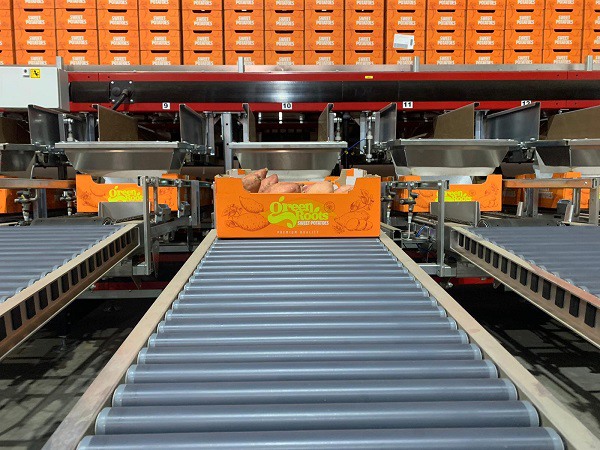
European acreage
GreenGoose is keeping an eye on developments in European sweet potato acreage too. “My primary focus in the current market will continue to be on imports. The local cultivation of sweet potatoes essentially offers us more opportunities. We are the only one on the European market with such a machine. But, given the European market’s demand, imports will remain necessary in the future.”
Efficient, with less waste, sorting per demand, and chances for overseas companies - Van der Goes is generally pleased with this machine. He’s not concerned that the designers will sell it to other clients. “That would mean we took the correct path,” Christian concludes.
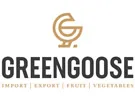 Voor meer informatie:
Voor meer informatie:
Christiaan van der Goes
GreenGoose BV
Mobile: +31648264074
christiaan@greengoose.nl
www.greengoose.nl
